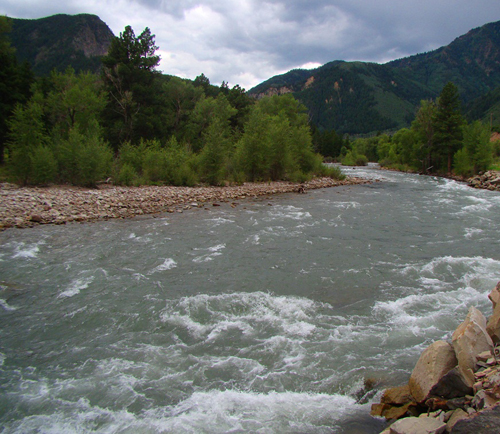Monday, December 23 2019
Did you know that “bad” weather can be a plus for prospectors? No one ever hopes that Mother Nature causes catastrophic loss of life and property, but the ups and downs of weather events in any gold-bearing area are something to take advantage of. Nature can help all of us in our quest for the shiny stuff! Typical winter storms usually do not create enough havoc to force substantial amounts of "new" gold into movement. However, when Mother Nature really goes to work over a “bad” winter or for an extended period of time, a great deal of gold can be set free, creating a bonanza for gold hunters in spring and summer. Gold veins that have been hidden for decades suddenly can be exposed. Floods can also sweep gold out of abandoned mines and wash it downriver. Known gold digs can be washed out, trees uprooted, and the landscape eroded. Benched gold deposits can be released and transported back into running streams. If you’re in an area that experiences high-water events, get out and keep an eye on the water flow so you can try to figure out where the gold actually drops out. Watch the flow lines around boulders and trees. Watch where the flows slow down. The rule of thumb — gold is in the inside bend where water is slowest — is a rule of thumb, but not always 100% accurate. On the flip side, if drought conditions prevailed last fall and continue this winter, adequate water levels needed for panning and sluicing may be difficult to find. By knowing this ahead of time, you won’t waste your time. You can plan to travel to better areas in the coming months. Water isn’t the only force that can work in a treasure hunter’s favor. If you are a detectorist, keep an eye on the wind. Downslope winds can strip and scrub away a great deal of surface material. This wind-driven movement of top sands can make an exciting difference— areas that came up empty just last year may suddenly be productive for a metal detector! Whether you’re in the midwest, southeast, or way out west, water table elevations and annual precipitation can have a significant impact on the amount of gold exposed in waterways, which can affect the probability of what you’ll find in your pan. Greater than average winter precipitation may swell waterways, liberating trace gold previously stranded in ground by droughts of late summer and early autumn. Good luck and be safe! |
|
Nugget of News Blog |






